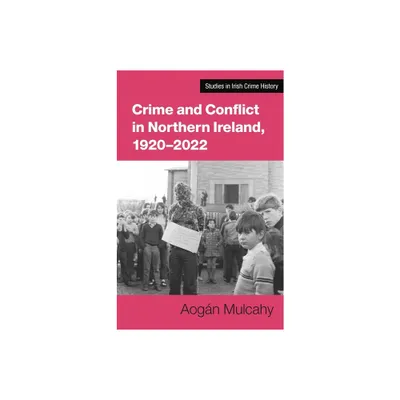Home
The Northern Ireland experience of conflict and agreement: A model for export?
Loading Inventory...
Barnes and Noble
The Northern Ireland experience of conflict and agreement: A model for export?
Current price: $130.00


Barnes and Noble
The Northern Ireland experience of conflict and agreement: A model for export?
Current price: $130.00
Loading Inventory...
Size: Hardcover
*Product Information may vary - to confirm product availability, pricing, and additional information please contact Barnes and Noble
The Northern Ireland experience of conflict and agreement presents a salutary warning to the international community against the fashionable view that there is an 'Irish model' which can be exported to cauterise ethnic troubles around the globe.
The book draws on extensive archive research in London and Dublin on the 1970s power-sharing experiment, and on interviews with senior officials and political figures from the two capitals-as well as reconciliation practitioners-about the negotiation and chequered implementation of the Belfast agreement. It shows how stereotyped conceptions of the problem as a product of 'ancient hatreds', allied to solutions based on Realpolitik, have failed to transform Northern Ireland from a fragile peace, following the exhaustion of protracted paramilitary campaigns, to genuine reconciliation.
The book concludes with practical proposals for constitutional reforms which would favour genuine power-sharing-rather than merely sharing power out-and set Northern Ireland on the road to the 'normal', civic society its long-suffering residents desire. It will be essential reading not only for academics and postgraduates interested in ethnic conflict but also for policy-makers who confront it in practice.
The book draws on extensive archive research in London and Dublin on the 1970s power-sharing experiment, and on interviews with senior officials and political figures from the two capitals-as well as reconciliation practitioners-about the negotiation and chequered implementation of the Belfast agreement. It shows how stereotyped conceptions of the problem as a product of 'ancient hatreds', allied to solutions based on Realpolitik, have failed to transform Northern Ireland from a fragile peace, following the exhaustion of protracted paramilitary campaigns, to genuine reconciliation.
The book concludes with practical proposals for constitutional reforms which would favour genuine power-sharing-rather than merely sharing power out-and set Northern Ireland on the road to the 'normal', civic society its long-suffering residents desire. It will be essential reading not only for academics and postgraduates interested in ethnic conflict but also for policy-makers who confront it in practice.


















